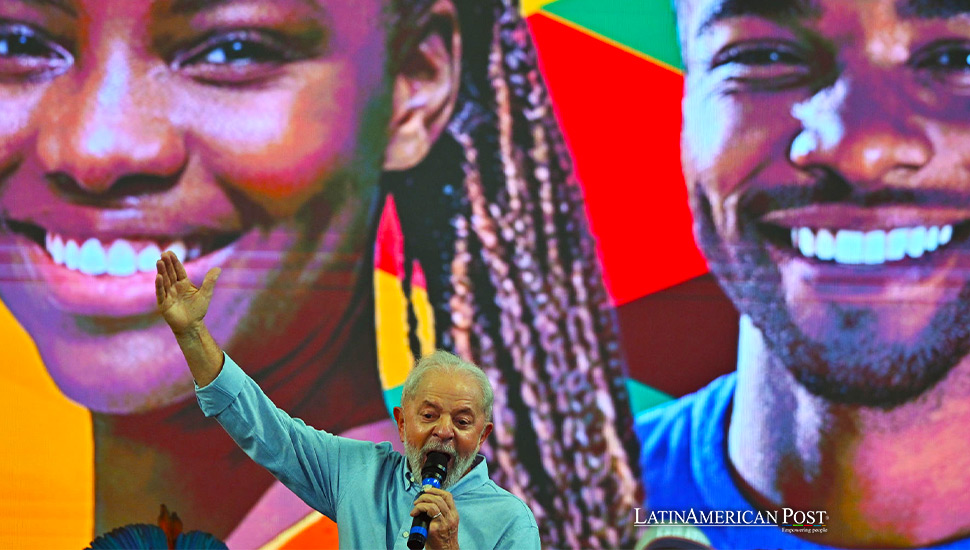Breaking Chains: Lula’s Bold Stand Against Racism in Brazil and Beyond

Brazilian President Luiz Inácio Lula da Silva’s audacious stride against racism, with the launch of a youth empowerment plan, highlights a broader Latin American struggle against racial inequity. This move combats local injustices and resonates with regional efforts to foster equality and social justice.
In the heart of Latin America, Brazilian President Luiz Inácio Lula da Silva champions a pivotal cause: eradicating the deep-rooted racism that scars Brazil and echoes across the continent. His recent initiative, a robust support plan for black youth, marks a significant stride in addressing the racial injustices that permeate Brazilian society.
Brazil, with its rich multicultural heritage, remains shadowed by the legacy of colonialism and slavery, manifesting in stark racial disparities. Lula’s passionate condemnation of racism addresses this legacy head-on, advocating for an end to the systemic discrimination that plagues black Brazilians.
A Global Resonance: The Vini Júnior Incident
Lula’s narrative extends beyond national borders, touching on global incidents of racism, like the abuses faced by footballer Vini Júnior in Spain. This example illustrates racism as a global malaise, transcending economic and national boundaries, and highlights the necessity of international solidarity in combating racial prejudices.
The Brazilian leader’s plan is comprehensive, targeting various sectors to ensure black youth in Brazil have access to equal opportunities. This approach symbolizes a broader need in Latin America to dismantle structural barriers that hinder Afro-descendant communities from achieving social and economic parity.
Latin America’s Shared Struggle with Racism
Across Latin America, countries grapple with their histories of racism and discrimination. From Colombia’s Afro-descendant communities facing violence and exclusion to Peru’s struggles with anti-blackness and the Dominican Republic’s complex racial dynamics, the region reflects a shared history of racial inequality that demands collective action.
Lula’s focus on black youth underscores their potential as catalysts for change. Investing in their education, health, and overall well-being, the initiative aims to nurture a generation capable of leading Brazil toward a more equitable future.
The Challenges Ahead: Implementing the Vision
Realizing Lula’s vision necessitates a multi-faceted approach, encompassing policy implementation, societal engagement, and dismantling entrenched racial biases. The success of this initiative will depend on a sustained commitment from all sectors of society to foster an environment where racial justice and equality flourish.
Lula’s anti-racism campaign transcends national boundaries, serving as a call to action for leaders across Latin America to confront and dismantle the legacy of racial oppression. It is a plea for regional solidarity and a collective effort to build societies grounded in equality and justice.
Creating a Legacy of Inclusivity and Fairness
As Lula’s anti-racism plan unfolds, its impact will be scrutinized within Brazil and internationally, serving as a potential blueprint for similar initiatives across Latin America. The program’s focus on youth empowerment, social justice, and racial equality could redefine Brazil’s societal fabric and inspire a continent-wide movement toward inclusivity.
Also read: Brazil’s Beachfront Paradise: A Guide to Florianopolis
President Luiz Inácio Lula da Silva’s initiative against racism, notably his support plan for black youth, represents a critical juncture in Brazil’s journey toward social justice. This initiative addresses Brazil’s internal challenges and positions the nation as a beacon of hope for racial equality in Latin America. As Lula’s administration forges ahead with this plan, the broader region watches, potentially ready to follow Brazil’s lead in eradicating the shadows of racial injustice to pave the way for a future where every individual, irrespective of their racial background, can live with dignity and equal opportunity.





